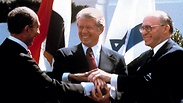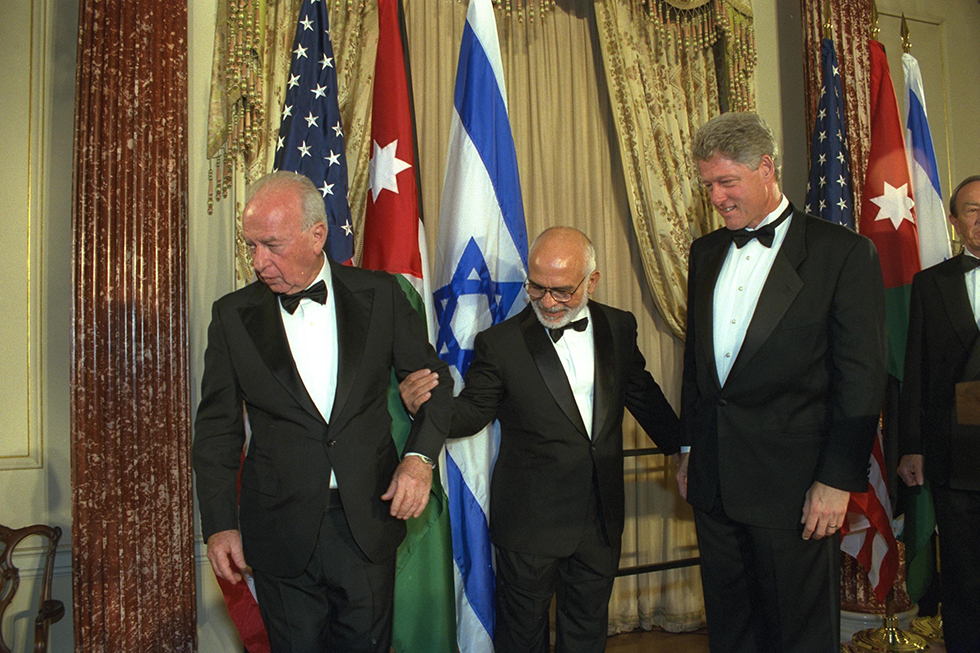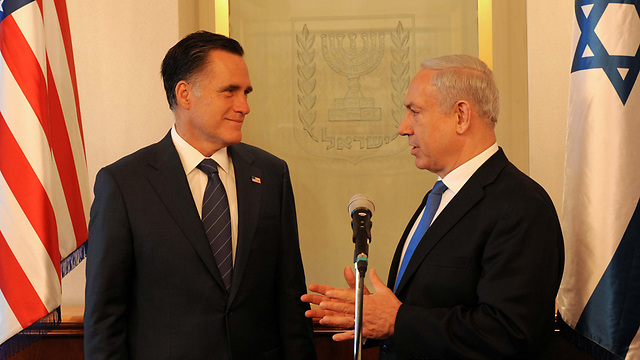
The world's dreams of ME peace have been diminished.
צילום: AP
We're not interesting anymore
Op-ed: Israel's standing in the eyes of the world depends in large part on our ability to keep the dreams of peace in the Middle East alive. Eliminating those dreams makes us more boring to the world, which weakens us as a country.
I no longer come to Israel, the senior American observer told me, there's nothing to see there. What do you mean? I politely asked. Look, he said, nothing's happening there. There's no peace, nor a peace process. And despite the rumors, there's nothing happening on the regional level either. There are exciting places in the world, and we need to prioritize.


I assume that if Education Minister Naftali Bennett was present, the American would have been scolded, and then invited to a tech company's offices in Herzliya. Prime Minister Netanyahu would probably have demanded that he come to the cyber activity capital in Beer Sheva, and shown the ignorant American his legacy—the southern border fence. Minister of Culture and Sport Miri Regev surely would have grabbed him by the hand and shown him all of the wonderful, culturally diverse projects she's been working on, in some imaginary, secret unknown mystery land.
All of them can keep their rebukes to themselves. There were times when the US presidential elections would have involved strong debates around the issue of Israel and the candidates' plans for Middle East peace. During this cycle, Israel is less present than ever. The Republican attempts to raise the topic in 2012, including the involvement of Israeli Ambassador to the US Ron Dermer and Prime Minister Benjamin Netanyahu, failed miserably. This time around, no one's even really trying.
Obama is a highly unpopular US President among the Israeli public, but his approval numbers are on the rise domestically—and among the highest received by a US president at this point of their time in office. The animosity of the Israeli population hasn't really affected his standing in the United States. When the Israeli PM decided to fight him by going to congress he got a great photo op, but at the same time he blew any chance of actually stopping the removal of sanctions from Iran.

Rabin, King Hussein of Jordan, and former US President Bill Clinton in 1994. The world no longer believes in Middle East peace. (Photo: Yaakov Saar/GPO) (צילום: יעקב סער, לע"מ)
What Netanyahu and Bennett don't understand is that the peace process is a component of Israel's power and prestige on the world stage. The Israeli-Arab conflict has fascinated the globe for decades, attracting mediators and statesmen—some dreamers and some Kissinger-style realists.
The disproportionate attitude of the international community towards Israel and the Palestinians isn't the result of an international anti-Semitic plot, but rather a historic understanding—which may be just a myth at its core—that Jerusalem is the center of the world.
That is to say, the sensitivity around this spot could create a threat level that's higly dangerous, but also contains massive potential – which the Israeli right-wingers like to sarcastically and sneeringly call "a new Middle East." Following a decade of no stately progress, with Israel's influence on the US turning out to be much more limited than previously thought, Jerusalem's shine in the eyes of the world has dimmed more and more.
There are more than a few Israelis who are encouraged by this situation. The American president's unwillingness to invest political capital in a Middle East peace process makes political life easier for Netanyahu when facing his government. A strategic advantage.
But while we are stagnating, the rest of the world rolls on: Cuba is opening up to the West, Iran has signed a historic deal limiting its nuclear program, China is threatening US allies in Asia, Burma is trying to walk itself towards the democratic path, and several African countries are beginning to show an incredible potential for growth.
Israel, if you put aside its high-tech industry, is dully repetitive by comparison.

Netanyahu and Romney. Inserting Israel into the 2012 elections failed to make the impact Republicans hoped for. (Photo: Avi Ohayon/GPO) (צילום: אבי אוחיון, לע"מ)
The prime minister likes to take pride of Israel's stability when compared to the tumultuous Arab world around us. There's reason to be proud, and it's to the credit of generations of Israeli leaders who built a stable, thriving democracy in the Middle East. A democracy based on the ethos of extending our hand in peace.
That ethos has led to complex stately processes involving the use of soft power, much of which relies on the prestige that is represented by the perceived possibility of bringing about an end to the conflict between Israel and the Arab world.
But that ethos was punctured over and over, and eventually smashed to pieces. Many people then worked hard to ensure that the possibility of ending the conflict would fade away, leading to the formation of the Middle East we see today.
The Americans are now discovering that the old axiom about Israel's importance in their political process is less true than they thought. This is dangerous for us here in the holy land. An Israel whose conflicts are now at the point of boring the wider world, who no one believes has a chance of achieving peace, is a weaker and more vulnerable country.
The author of this piece is the director of the foreign news desk at Channel 10 News.










